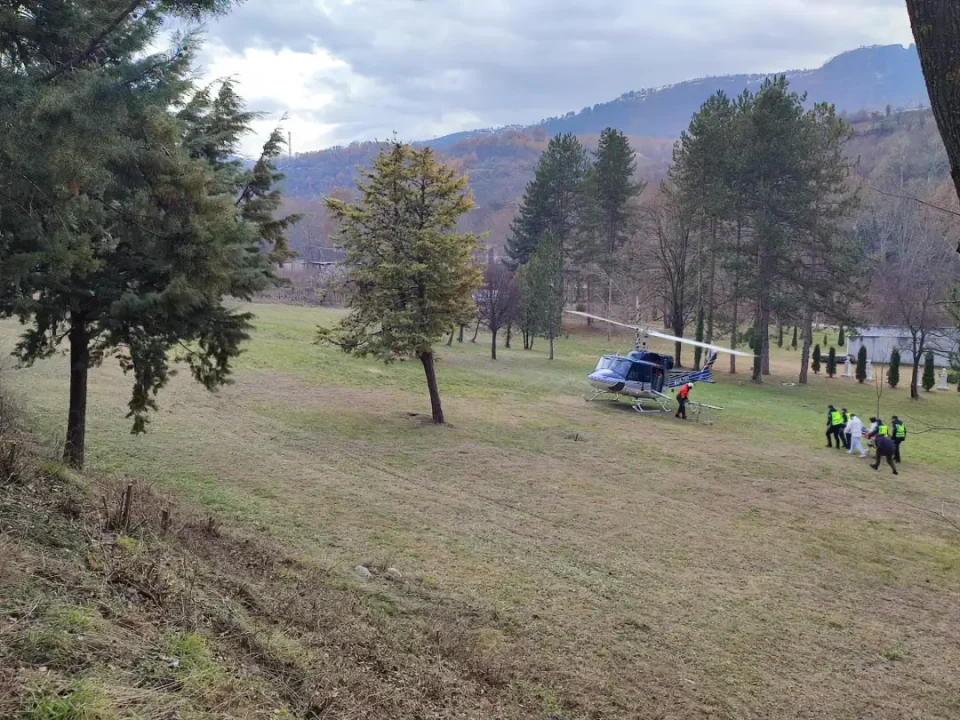Friday’s ‘Reflex 2023′ tactical exercise, held in Moklishte near Kavadarci, centered on addressing cross-border crime and combating migrant smuggling. Organized by the Regional Center for Border Affairs “Jug” and Sector for Border Affairs and Migration, with support from the European Border and Coast Guard Agency (FRONTEX), the Interior Ministry’s helicopter unit, and Kavadarci General Hospital, the event aimed to enhance preparedness and response capabilities.
Interior Minister Oliver Spasovski highlighted the ongoing challenges at the border with Greece regarding illegal crossing attempts. Notably, this year saw a 50 percent decrease in such attempts, with 12,000 migrants detected. Strengthened measures, heightened control at border crossings, interior checkpoints, and collaborative efforts with Frontex contributed to this reduction. Despite a similar number of migrant smuggling cases at the Regional Center for Border Affairs “Jug” compared to the previous year, improved efficiency in detection indicated progress.
Spasovski emphasized the need to balance security measures with upholding the human aspect and respecting migrants’ rights amid this global challenge. He praised exercises like ‘Reflex 2023’ for actively preparing law enforcement for daily challenges, stressing the importance of data exchange and coordinated engagement for effective responses.
Acknowledging the significance of joint efforts with Frontex in fortifying European borders, Spasovski commended the EU’s strides in reforming migration and asylum policy. He applauded the historic pact as a culmination of a comprehensive effort to replace ad hoc crisis management with calculated norms binding to all member-states. The New Pact on Migration and Asylum encompasses screening of irregular migrants, biometric data collection, asylum procedures regulation, member-state responsibilities, inter-state cooperation, crisis management, and mitigating the instrumentalization of migrants.
Spasovski underlined the pact’s importance in establishing binding norms, fostering responsibility among member-states, and promoting solidarity, ultimately seeking a balance in handling asylum seekers across the EU.





Comments are closed for this post.